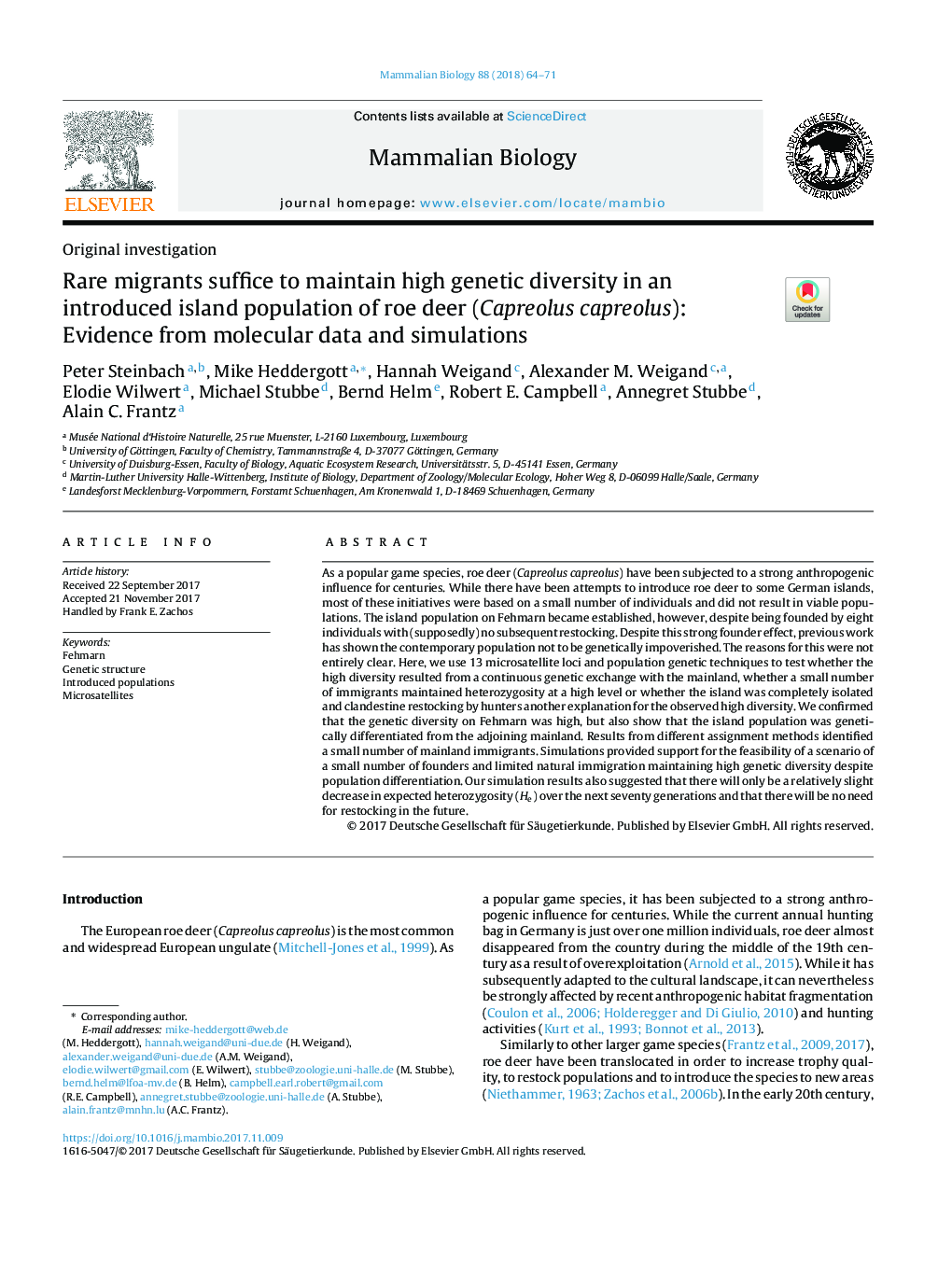| کد مقاله | کد نشریه | سال انتشار | مقاله انگلیسی | نسخه تمام متن |
|---|---|---|---|---|
| 8475742 | 1550459 | 2018 | 8 صفحه PDF | دانلود رایگان |
عنوان انگلیسی مقاله ISI
Rare migrants suffice to maintain high genetic diversity in an introduced island population of roe deer (Capreolus capreolus): Evidence from molecular data and simulations
دانلود مقاله + سفارش ترجمه
دانلود مقاله ISI انگلیسی
رایگان برای ایرانیان
موضوعات مرتبط
علوم زیستی و بیوفناوری
علوم کشاورزی و بیولوژیک
علوم دامی و جانورشناسی
پیش نمایش صفحه اول مقاله

چکیده انگلیسی
As a popular game species, roe deer (Capreolus capreolus) have been subjected to a strong anthropogenic influence for centuries. While there have been attempts to introduce roe deer to some German islands, most of these initiatives were based on a small number of individuals and did not result in viable populations. The island population on Fehmarn became established, however, despite being founded by eight individuals with (supposedly) no subsequent restocking. Despite this strong founder effect, previous work has shown the contemporary population not to be genetically impoverished. The reasons for this were not entirely clear. Here, we use 13 microsatellite loci and population genetic techniques to test whether the high diversity resulted from a continuous genetic exchange with the mainland, whether a small number of immigrants maintained heterozygosity at a high level or whether the island was completely isolated and clandestine restocking by hunters another explanation for the observed high diversity. We confirmed that the genetic diversity on Fehmarn was high, but also show that the island population was genetically differentiated from the adjoining mainland. Results from different assignment methods identified a small number of mainland immigrants. Simulations provided support for the feasibility of a scenario of a small number of founders and limited natural immigration maintaining high genetic diversity despite population differentiation. Our simulation results also suggested that there will only be a relatively slight decrease in expected heterozygosity (He) over the next seventy generations and that there will be no need for restocking in the future.
ناشر
Database: Elsevier - ScienceDirect (ساینس دایرکت)
Journal: Mammalian Biology - Volume 88, January 2018, Pages 64-71
Journal: Mammalian Biology - Volume 88, January 2018, Pages 64-71
نویسندگان
Peter Steinbach, Mike Heddergott, Hannah Weigand, Alexander M. Weigand, Elodie Wilwert, Michael Stubbe, Bernd Helm, Robert E. Campbell, Annegret Stubbe, Alain C. Frantz,